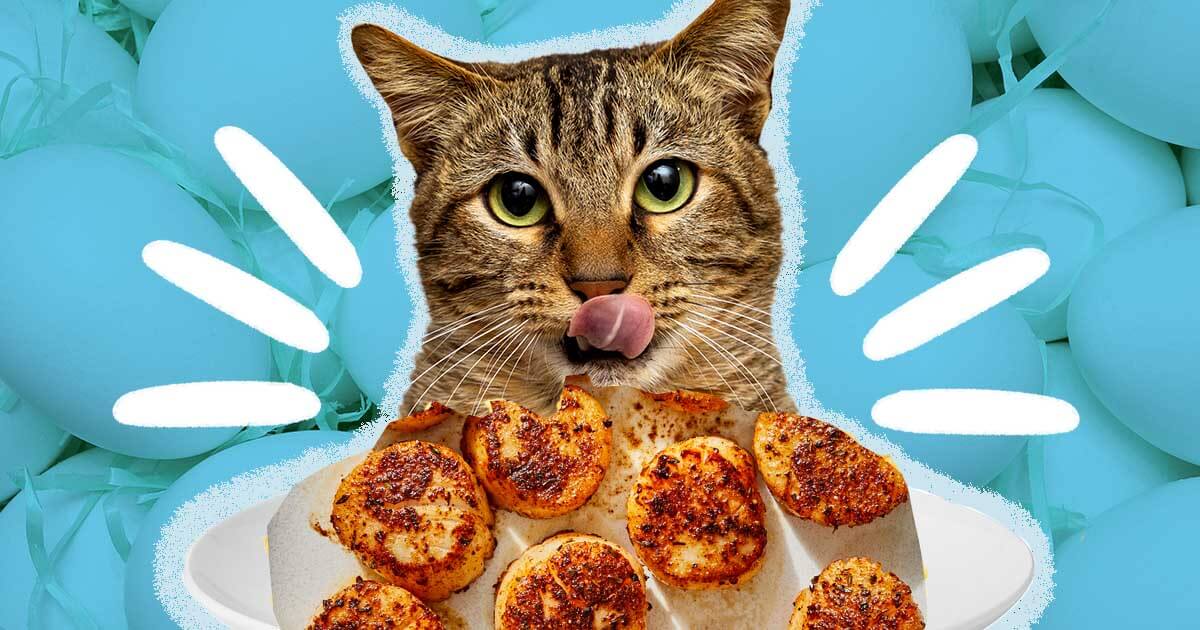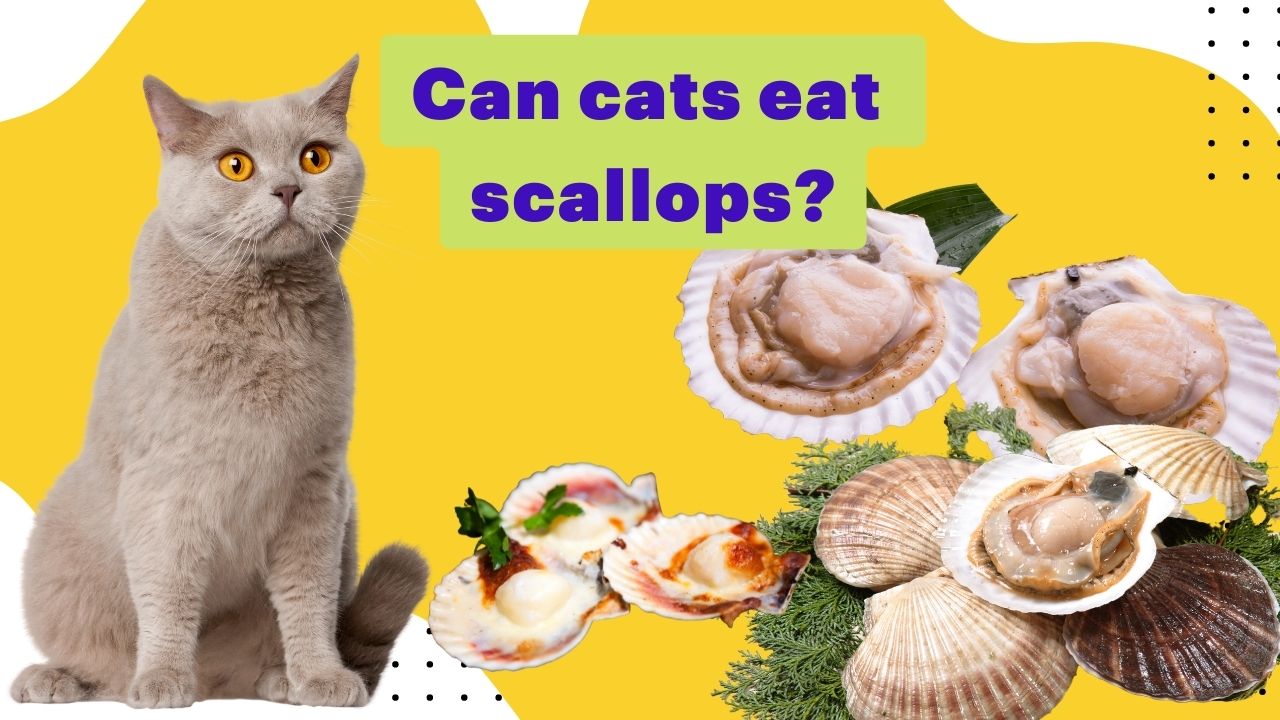Cats are known for their curious nature and their tendency to explore different types of food. As a cat owner, it’s important to be aware of what foods are safe for your feline friend to consume. One such food that may pique your interest is scallops. In this article, we will delve into the question, “Can cats eat scallops?” and provide you with all the information you need to make an informed decision about feeding scallops to your beloved pet.

Can Cats Eat Scallops?
Scallops are a type of shellfish that are often enjoyed by humans due to their delicate flavor and tender texture. However, when it comes to cats, it’s essential to consider their dietary needs and potential risks before introducing any new food into their diet.
While cats are obligate carnivores and primarily require a diet rich in animal protein, it’s important to note that not all types of seafood are safe for them. Scallops, in particular, can pose certain risks to cats if not prepared and served properly.
The Risks of Feeding Scallops to Cats
Scallops can be a potential source of foodborne illnesses for cats. They may contain harmful bacteria or parasites that can cause digestive issues, such as vomiting and diarrhea. Additionally, scallops are often seasoned with various spices and herbs, which can be harmful to cats. Some seasonings, like garlic and onion, are toxic to felines and can lead to serious health complications.
Furthermore, scallops are high in cholesterol and sodium, which are not suitable for cats in large quantities. Excessive consumption of these nutrients can lead to health problems, including cardiovascular issues and high blood pressure.
Moderation is Key
If you still wish to offer scallops to your cat, it’s crucial to do so in moderation and with proper preparation. Here are some guidelines to follow:
-
Cook the scallops thoroughly: Ensure that the scallops are fully cooked to eliminate any potential bacteria or parasites that may be present.
-
Remove all seasonings: Before serving, make sure to remove any spices or herbs from the scallops. Plain, unseasoned scallops are the safest option for cats.
-
Cut into small, manageable pieces: To prevent choking hazards, cut the scallops into small, bite-sized pieces that are easy for your cat to chew and swallow.
-
Offer as an occasional treat: Scallops should only be given as an occasional treat and not as a regular part of your cat’s diet. Remember, a balanced and complete cat food is essential for their overall health and well-being.
Conclusion
In conclusion, while cats are carnivores and can consume certain types of seafood, it’s important to exercise caution when it comes to feeding them scallops. Due to the potential risks associated with scallops, it’s best to avoid offering them to your feline friend. Instead, focus on providing a balanced and nutritionally complete diet that meets all their dietary requirements.
Remember, if you have any concerns or questions about your cat’s diet, it’s always best to consult with your veterinarian for personalized advice.
FAQs
-
Can cats eat raw scallops?
No, it is not recommended to feed cats raw scallops. Raw seafood can contain harmful bacteria and parasites that can cause digestive issues in cats. -
Are scallops toxic to cats?
Scallops themselves are not toxic to cats, but they can pose risks if not prepared and served properly. Seasonings and improper cooking methods can be harmful to felines. -
What should I do if my cat accidentally eats scallops?
If your cat accidentally consumes scallops, monitor them closely for any signs of digestive distress. If they exhibit symptoms such as vomiting, diarrhea, or lethargy, contact your veterinarian immediately. -
Can cats eat other types of seafood?
Cats can consume certain types of seafood, such as cooked fish like salmon or tuna, in moderation. However, it’s important to avoid seafood that is high in mercury or seasoned with harmful ingredients. -
What are some safe treats for cats?
There are several safe and healthy treats available for cats, such as freeze-dried meat treats or specially formulated cat treats. Always check the ingredients and consult with your veterinarian before introducing new treats to your cat’s diet.

